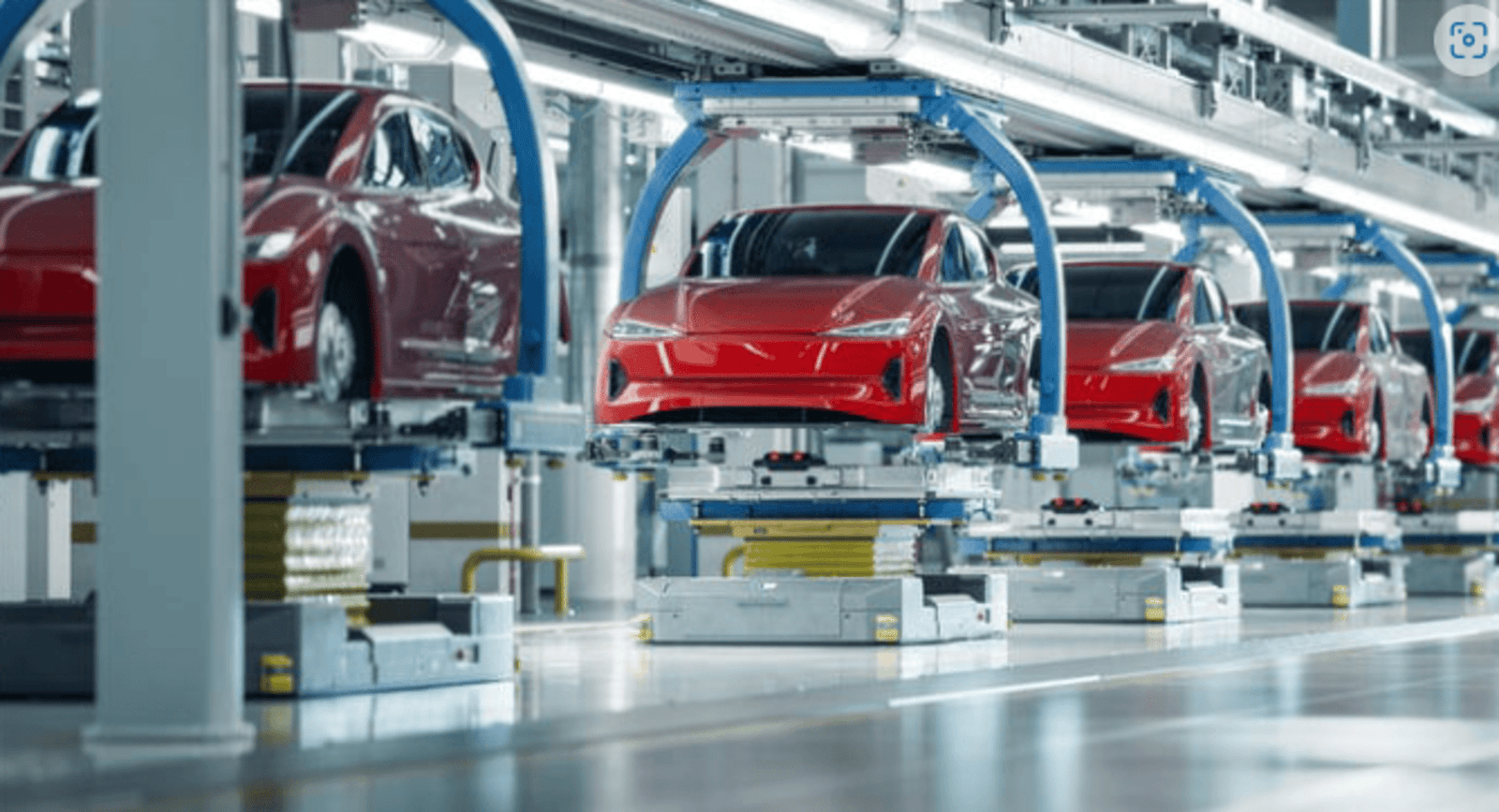
Tesla Rises 38 Points Time to Invest? Tesla Stock Surges: Should You Buy Now?
Tesla’s stock has seen an impressive wave, rising 38% since November 5. Investors are closely watching the electric vehicle giant as it benefits from a mix of political developments, market conditions, and its strong brand reputation. Let’s cover the details behind Tesla’s rally and explore whether it’s a smart investment now.
Tesla’s Recent Performance
Tesla has captured market attention with its remarkable price rally. Shares have climbed steadily, benefiting from optimism tied to broader market trends. The company’s performance shows strong investor confidence even with challenges.
Since November 5, Tesla’s stock has gained significant momentum. This growth comes amid political shifts, particularly following Donald Trump’s re-election victory. Many reflects that Tesla stands to benefit under a Trump administration, though opinions vary.
Challenges in Tesla’s Core Business
While Tesla’s automotive business remains a foundation of its success, growth has slowed. The company’s third-quarter revenue increased by only 2% year-over-year, reaching $20 billion. This contrasts sharply with its 74% growth rate three years ago.
The slowdown isn’t entirely negative. It has outperformed major competitors like the Toyota Corolla. However, market saturation is evident. Most potential buyers may have already purchased a Tesla.
Tesla’s automotive division has maintained strong profitability even with slowing revenue growth. Adjusted EBITDA rose 24% to $4.7 billion. This shows the company’s ability to generate stable cash flow, even in a maturing market.
Political Influence on Tesla’s Future
The political landscape has significantly influenced Tesla’s path. Elon Musk actively supported Donald Trump’s presidential campaign. His involvement included a reported $132 million donation through America PAC.
With Trump back in office, Tesla faces a mixed regulatory environment. On the positive side, the administration may ease restrictions on technologies like self-driving cars and artificial intelligence. However, the elimination of the $7,500 EV tax credit could pose challenges. This subsidy has made electric vehicles more affordable, boosting their sales.
Tesla’s plans to expand manufacturing in Mexico may also face hurdles. Trump’s promise to curb outsourced manufacturing could conflict with Tesla’s ambitions.
Strength in Non-Automotive Ventures
Tesla’s non-automotive businesses are gaining grip. The company’s ventures into self-driving cars, robotics, and artificial intelligence hold immense potential. These areas could become major growth drivers as the EV market matures.
However, these ventures require time to mature. The development of autonomous vehicle technology, for example, is still in progress. Regulatory frameworks and technological hurdles need to be addressed before these areas contribute significantly to Tesla’s bottom line.
Valuation Concerns
Tesla’s valuation has raised eyebrows among investors. The company’s forward price-to-earnings (P/E) ratio stands at a staggering 103. This figure highlights a disconnect between the stock’s price and its underlying fundamentals.
While Tesla is undoubtedly a market leader, its current valuation may be too high. The stock’s recent rally reflects optimism rather than tangible growth prospects.
Long-Term Potential
Even with short-term challenges, Tesla’s long-term potential remains intact. Its leadership in EV technology, combined with its forays into AI and robotics, positions it well for future growth.
Investors must weigh Tesla’s premium valuation against its transformative potential. The company’s ability to diversify revenue streams and adapt to market changes will be critical in maintaining its edge.
Is Tesla Stock a Buy Now?
Tesla’s recent surge has sparked debate among investors. The stock’s 38% rise underscores its appeal but also highlights potential risks. Slowing automotive growth, high valuation, and uncertain political impacts make this a complex decision.
For long-term believers in Tesla’s vision, holding the stock may make sense. However, for value-focused investors, waiting for a price correction could offer a safer entry point. Tesla’s story is far from over, but its current valuation demands careful consideration.
Tesla’s stock has been on an impressive upward trajectory, sparking debates among investors. The 38% surge in its share price since early November has made the company a focal point in the market.
On the positive side, Tesla remains a leader in the electric vehicle (EV) industry. Its innovative technology and strong brand have solidified its position in a competitive market. The Model Y is a global bestseller, outshine well-established competitors like the Toyota Corolla. Moreover, Tesla’s ventures into non-automotive sectors—such as autonomous driving, robotics, and artificial intelligence—present exciting opportunities for future growth. These areas, though still evolving, could become significant revenue streams.
Tesla’s profitability is another factor to consider. Even with a slowdown in revenue growth, the company’s margins remain robust. Its adjusted earnings before interest, taxes, depreciation, and amortization (EBITDA) increased by 24% in the recent quarter. This demonstrates Tesla’s ability to manage costs effectively while maintaining financial strength.
However, there are reasons for caution. Tesla’s valuation is exceptionally high, with a forward price-to-earnings (P/E) ratio of 103. This raises concerns about whether the current stock price accurately reflects the company’s fundamentals. Additionally, growth in its core automotive segment has slowed as market saturation becomes evident.
Political factors add another layer of uncertainty. Changes in tax credits and manufacturing policies under the current administration could impact Tesla’s operations and demand for its vehicles.
Ultimately, Tesla remains a compelling but complex investment. For long-term investors with confidence in its vision, the stock could be a hold. However, value-conscious buyers may prefer to wait for a more attractive entry point.
Conclusion
Tesla’s performance shows strengths and challenges. The company’s innovative spirit and market leadership continue to inspire confidence. Yet, its high valuation and slowing automotive growth raise valid concerns.
Investors must carefully evaluate Tesla’s prospects. While its potential is undeniable, timing is crucial. For now, Tesla remains a fascinating, although risky, investment opportunity.







